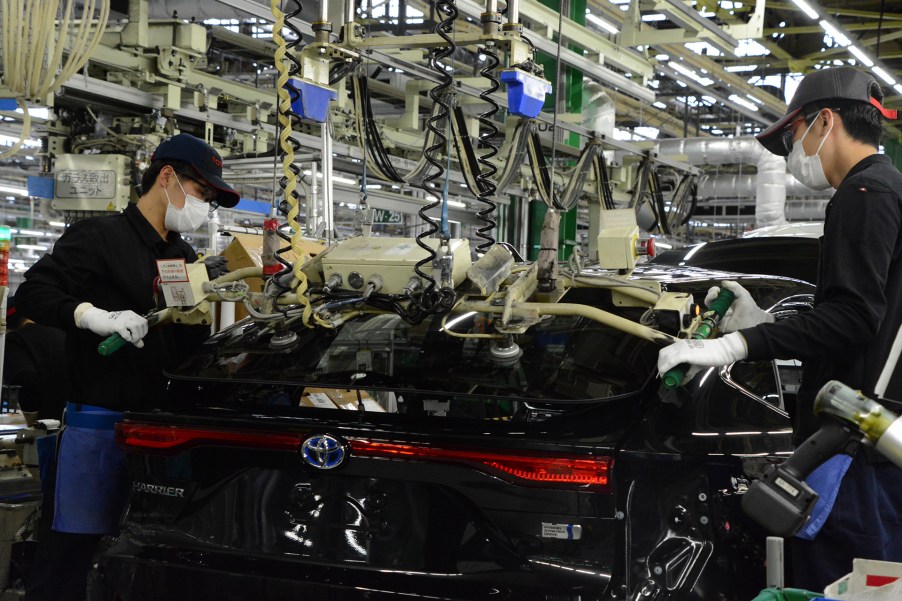
Toyota Pushing To Recover From Global Chip Shortage
The global chip shortage has hit hard across the entire automotive industry. Automakers have had to temporarily shut down plants, delay production of vehicles, or leave features out of new cars. Though it looks like the industry might be reaching the end of the tunnel, and Toyota is pushing to get back in the swing of things.
Toyota aims to restart production previously halted by the global chip shortage

Toyota is one of several automakers forced to limit its production of new vehicles due to the global chip shortage. However, Reuters is reporting that due to increased shipments from suppliers that were hampered by the pandemic, Toyota is looking to restart some of its paused production by December 2021. According to sources that spoke with Reuters, Toyota believes it can recover a third of the output it lost to dwindling supplies such as the chip shortage.
In September 2021, the Japanese automaker reduced its production target for its fiscal year ending in March to 9 million vehicles which is down 300,000 from the previous year. Toyota cited a rise in coronavirus (COVID-19) infections at its plants in Malaysia and Vietnam, in addition to the global chip shortage as reasons for its reduced target.
The report says that Toyota has asked its suppliers to “make up for lost production” to produce an extra 97,000 vehicles between December 2021 and March 2022. According to anonymous sources, some of those suppliers would need to run additional weekend shifts to reach the production goals that Toyota has set out.
A spokesperson for Toyota has said that “nothing has yet been decided about production plans beyond November.”
Reduced coronavirus infection rates may be the cause for Toyota’s confidence that it can regain some of the lost vehicle production.
“COVID infection rates in Southeast Asia are dropping dramatically and people’s concerns about production risk are easing,” said Takashi Miyao, a researcher at automotive industry consultant Carnorama.
Some of Toyota’s competitors have handled the shortage better

Unfortunately for Toyota, some of its rivals have managed to shoulder the chip shortage much easier. Korean automaker Hyundai actually saw increased sales during the shortage and the pandemic shutdowns.
U.S. automaker Telsa is another competitor that faired exceptionally well despite the chip shortage. The electric vehicle company managed to endure the harsh supply chain environment by shifting its suppliers. The company also reworked the firmware on its vehicles to work with parts that were less reliant on the chips that were in short supply.
The White House is getting involved with automakers in America

While Toyota is working with suppliers in Asia to recover the production it lost to the chip shortage, the “big three” (Ford, GM, Stellantis) automakers are working with the government on a solution.
In September 2021, the automakers mentioned above met with the Biden administration to discuss the global chip shortage. The President’s administration asked the automakers to voluntarily submit production information pertaining to how the chip shortage has hurt their vehicle production. It is unclear how the U.S. government will use that information to aid the big three automakers.
If Toyota manages to reach its goal of regaining some of its production before the end of 2021, it could spell hope for other automakers in the same boat.


